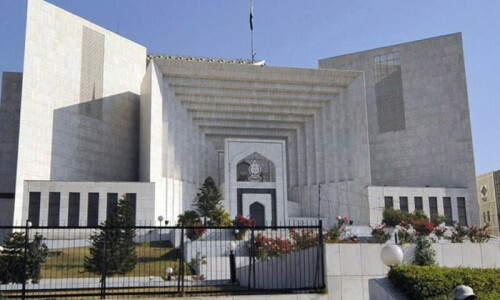REBUILDING Haiti will take generations because the earthquake-shattered country was starting from “below zero” and logistics remained a “nightmare”, the United Nations has warned. The bleak long-term assessment came as basic medical supplies in Port-au-Prince ran dangerously low and concerns grew of a public health calamity with the onset of the rainy season.
Several hospitals and clinics reported shortages of painkillers and antibiotics for patients with fractures, amputated limbs and infections. Relief agencies said there was also an urgent need for tents.
Edmond Mulet, acting head of the UN mission in Haiti, warned that emergency relief efforts were the start of a commitment that would be much longer than the international community might realise. “I think this is going to take many more decades ... this is an enormous backwards step in Haiti's development,” he told the BBC. “We will not have to start from zero but from below zero.”
Foreign governments pledged to back a decade-long rebuilding effort but that timescale could need revising at a donor conference in the coming months.
The US military signalled plans to start transferring authority to the state and aid agencies within three to six months.
The magnitude-seven quake on Jan 12 caused the deaths of an estimated 200,000 people, left 1.5 million homeless and three million in need of aid. It destroyed much of Haiti's infrastructure.
Some 200,000 heavy-duty tents have been ordered to cope with the rainy season, which typically begins in May, and the hurricane season soon after.
Only about a tenth of that number of tents has reached Haiti. Salvage crews have started clearing rubble in Port-au-Prince but with three-quarters of the buildings mostly demolished the task is immense. There are plans for “tent cities” outside the capital and suggestions the city could be moved to a site less vulnerable to quakes.
Some relatively unscathed neighbourhoods show a semblance of normality markets, shops and banks were working and schools were due to open on Monday. Water, food and medicine is reaching more of the improvised camps.
Mullet, who is also the UN's assistant secretary-general for peacekeeping, said coordination between Haitian police and UN troops was improving aid delivery but relief logistics remained a “nightmare”.
— The Guardian, London












































Dear visitor, the comments section is undergoing an overhaul and will return soon.